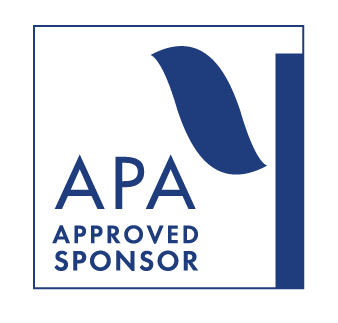
Producer: VPA/Brattleboro Retreat
In this live virtual workshop, participants will learn about the ACEs study and subsequent research and findings including correlations to chronic illness, including mental health conditions including anxiety. They will learn the mechanisms by which ACEs can lead to illness and premature death. They will learn how to assess for stress from moment to moment and teach skills that can assist patients in staying within and stretching their window of affective tolerance. They will learn how to target (treatment) plan with easy-to-use worksheets and the ACE Questionnaire, emphasizing the importance of early memories (both positive and negative). They will learn how to use this information to shape their treatment goals and intervention methods. They will also learn how to use this structured approach with their own theoretical approach to therapy (e.g., EMDR, CBT, ACT, etc.) and be able to reconcile challenges in therapy (.e.g., blocking beliefs, secondary gain, etc.). It is important to note that there is a practicum component and the workshop is highly participatory.
This is an all-day highly participatory, practicum-based training.
There will be two 15-minute breaks, one in the morning and one in the afternoon, and a 30-minute break for lunch.
Please note: You must attend the ENTIRE workshop to receive continuing education credit. Partial credit will not be awarded. Please do not schedule appointments or other obligations that will interfere with your attendance.
There is a $25 cancellation fee if you cancel your reservation prior to the date of the workshop; we cannot provide refunds or vouchers for cancellations on or after the date of the workshop.
 The Vermont Psychological Association is approved by the American Psychological Association to sponsor live continuing education for psychologists. The Vermont Psychological Association maintains responsibility for its programs and their content.
The Vermont Psychological Association is approved by the American Psychological Association to sponsor live continuing education for psychologists. The Vermont Psychological Association maintains responsibility for its programs and their content.
Completion of this course earns 7 continuing education credits. Psychologists licensed in states whose licensing board approves continuing education offered by APA-approved sponsors may earn continuing education credits for this course.
Courses sponsored by the Vermont Psychological Association are pre-approved for continuing education for psychologists by the Vermont Board of Psychological Examiners. This course qualifies for 7 continuing education credits.
Continuing education courses sponsored by the Vermont Psychological Association are pre-approved by the Vermont Office of Professional Regulation for continuing education credit for licensed independent clinical social workers in Vermont. This course provides 7 CE credits for Vermont licensing.
This course has been approved for continuing education credit by the Vermont Board of Allied Mental Health and earns 7 continuing education credits.
The Vermont Psychological Association is approved by the American Psychological Association to offer continuing education for psychologists. These credits are also accepted by the New Hampshire Board of Mental Health Practice for clinical social workers licensed in New Hampshire, as provided in Mhp 402.02(b)(1). The course qualifies for 7 continuing education credits.
The Vermont Psychological Association is approved by the American Psychological Association to offer continuing education for psychologists. These credits are also accepted by the New Hampshire Board of Mental Health Practice for clinical mental health counselors licensed in New Hampshire, as provided in Mhp 402.02(b)(1). The course qualifies for mandated credit types as follows:
Ethics:
Suicide Prevention:
The Vermont Psychological Association is approved to offer continuing education to licensed clinical social workers by the Vermont Office of Professional Regulation, and is approved by the American Psychological Association to offer continuing education to psychologists. This course thus qualifies for 8.4 continuing education credits for Massachusetts licensed clinical social workers in Massachusetts under 258 C.M.R. §§ 31.04(2)(d), 31.04(5).
The Vermont Psychological Association is approved to offer continuing education to licensed clinical social workers by the Vermont Office of Professional Regulation, and is approved by the American Psychological Association to offer continuing education to psychologists. This course thus qualifies for 8.4 continuing education credits for Massachusetts licensed certified social workers in Massachusetts under 258 C.M.R. §§ 31.04(2)(d), 31.04(5).
This course has been approved by the Massachusetts Mental Health Counselors Association for continuing education credit for licensed mental health counselors in Massachusetts. MaMHCA Approval # Approval Applied For
| Speaker Slides (671.8 KB) | 36 Pages | Available after Purchase |
| ACE Questionnaire (22.8 KB) | 1 Pages | Available after Purchase |
| Blocking Beliefs Questionnaire (40.5 KB) | 2 Pages | Available after Purchase |
| Buckets Diagram (29.2 KB) | 1 Pages | Available after Purchase |
| Disturbing Memory Worksheet (534.8 KB) | 4 Pages | Available after Purchase |
| Positive Memory Worksheet (535.3 KB) | 4 Pages | Available after Purchase |
| Practicum Form: Disturbing Memory Worksheet (21.1 KB) | 1 Pages | Available after Purchase |
| Practicum Form: Positive Memory Worksheet (21.2 KB) | 2 Pages | Available after Purchase |
| Practicum Form: Timeline (17.1 KB) | 1 Pages | Available after Purchase |
| Stress Timeline (11.8 KB) | 1 Pages | Available after Purchase |
| SUDS (12 KB) | 1 Pages | Available after Purchase |
| Timeline (14.9 KB) | 1 Pages | Available after Purchase |
Daniel Mitchell PhD is a psychologist at a busy medical practice in Central Vermont. Dan practiced in the Watertown area for 8 years prior to moving to Vermont and was trained in Flagstaff, Arizona. He has advanced training in Mindfulness-Based Stress Reduction, Cognitive Behavioral Therapy, Acceptance and Commitment Therapy, Dialectical Behavior Therapy and is EMDRIA-certified in Eye Movement Desensitization and Reprocessing (EMDR). He has been in practice for 20 years in a variety of settings including community mental health, medical settings, school-based practices, and corrections, and he employs a fully integrated Mind-Body Medicine approach to both his professional and personal practice. Dan has also had a passion for clinicians in “the trenches” of mental healthcare, a driving force behind his desire to teach others techniques and processes that have made his job more rewarding and have improved outcomes for his patients.
Understand the history and findings from ACEs research to better guide your clinical practice.
Determine how ACEs impact human development and common mechanisms that lead to anxiety.
Incorporate resource development to help your patients stay within their window of affective tolerance.
Incorporate the easy-to-use timeline method of assessment and treatment planning to better understand your patients’ history and how you can most effectively treat them.
Analyze and link your patient's positive traits and experiences to core beliefs that are more adaptive for more success in treatment.
Teach your patients how to identify and modify core beliefs for more adaptive functioning.
Learn ACEs-informed techniques you can easily deploy with any client to address common types of anxiety and specific symptoms such as rumination, phobias, and fears about future situations.